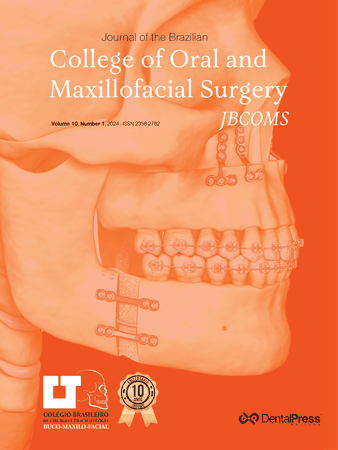
Your cart is empty!
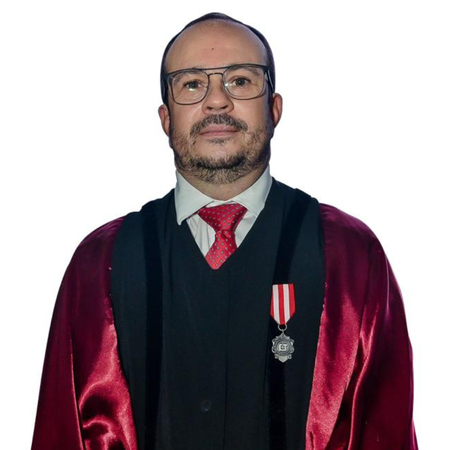
Prezados colegas,É com grande satisfação que anunciamos importantesmelhorias em nosso portfólio de benefícios,visando atender às necessidades dos membros,de forma ainda mais abrangente e eficaz.



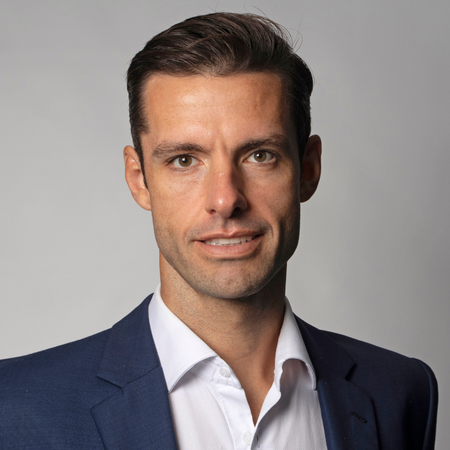
No corrente ano de 2024, um dos temas mais comentados é o impacto da inteligência artificial (IA) em nossas vidas. Certamente, a IA vai influenciar todas as áreas da Saúde e acredito que vai revolucionar nossa especialidade, em especial a Cirurgia Ortognática, que já é totalmente envolvida com números, imagens digitais, softwares, impressão 3D e algoritmos. Alguns também fizeram esse previsão (que até os dias de hoje não se confirmou em relação à Cirurgia Ortognática) para as...

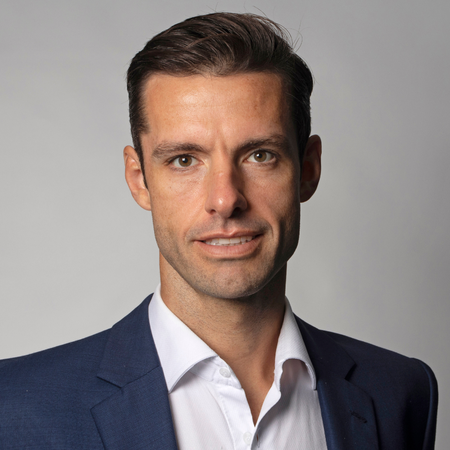
In the current year of 2024, one of the most discussed topics is the impact of artificial intelligence (AI) on our lives. AI will certainly influence all health areas and I believe it will revolutionize our specialty, mainly in orthognathic surgery, which is already fully involved with numbers, digital images, software, 3D printing and algorithms. Some have also made this prediction (which so far has not been confirmed in relation to orthognathic surgery) for resorbable plates and...

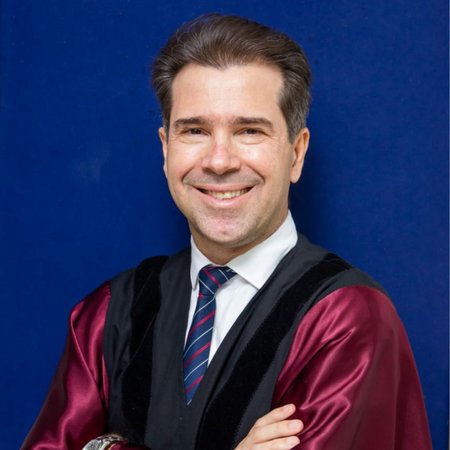
Foi com grande satisfação que recebi o honroso convite para escrever sobre a Cirurgia Ortognática moderna. Atuo na área e, nos últimos 30 anos, acompanho a sua evolução, que foi muito grande.

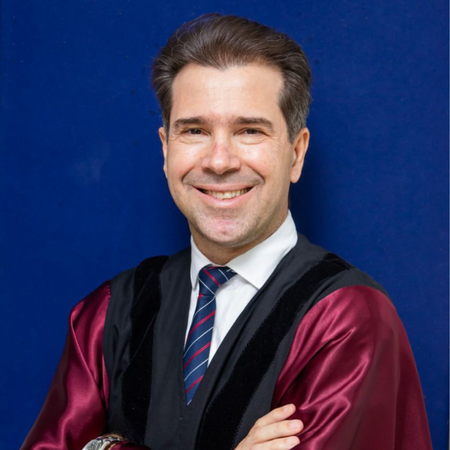
I was very pleased to receive the honorable invitation to write about modern Orthognathic Surgery. I work in the field and, over the last 30 years, I have followed its evolution, which has been very significant.

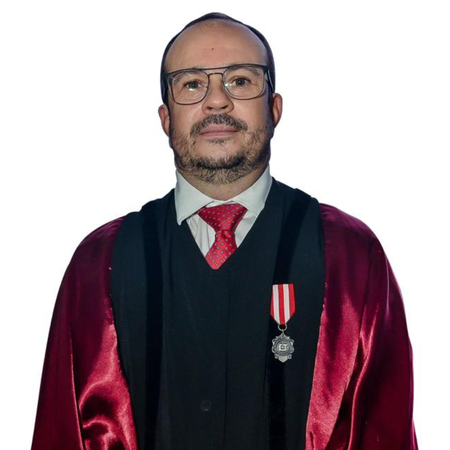
Dear colleagues, We are pleased to announce important improvements to our portfolio of benefits, aiming to meet the needs of our members in an even more comprehensive and effective manner.

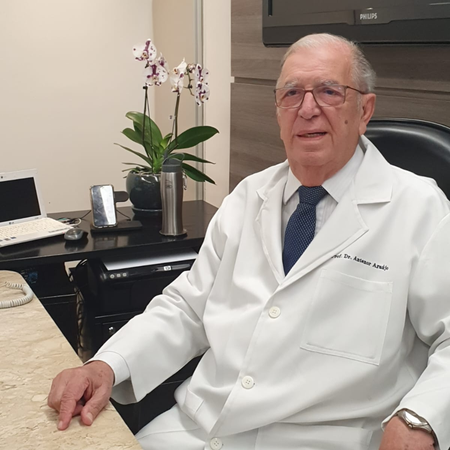
1. Como você vê a evolução da Cirurgia Ortognática ao longodos anos, em termos de técnicas e tecnologias utilizadas?Sem dúvida, ao longo dos anos, novas técnicas e tecnologias foramintroduzidas na Cirurgia Ortognática. Atualmente, o fluxo digitalpara o Planejamento Virtual é uma realidade.

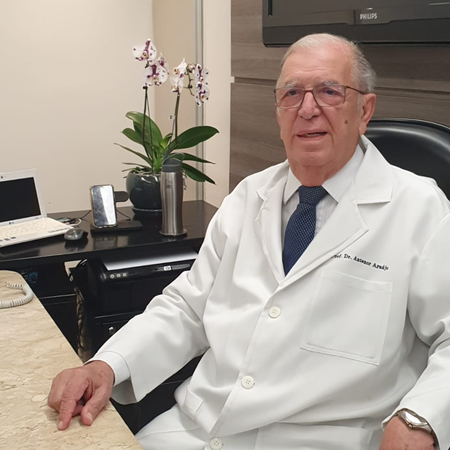
1. How do you consider the evolution of orthognathic surgery over the years, concerning the techniques and technologies used? Undoubtedly, over the years, new techniques and technologies have been introduced into orthognathic surgery. Currently, the digital flow for Virtual Planning is a reality.

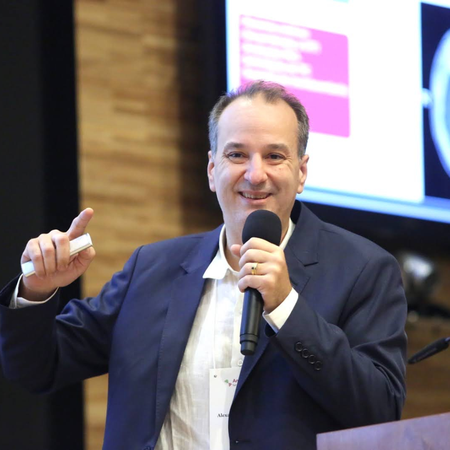
A presente coluna da JBCOMS faz, com profundo pesar e respeito, uma homenagem ao Dr. Alexander Sverzut, cujo legado permanecerá eternamente presente na comunidade médica; mas, acima de tudo, ao professor, amigo, marido, irmão e pai, que nos deixou tão precocemente e que fará uma falta inestimável. Conversamos com Tatiana do Valle Lovato Sverzut, esposa, e Cassio Edvard Sverzut — irmão, do querido colega Alexander Sverzut, falecido no dia 24 de abril de 2024 —, que deram...

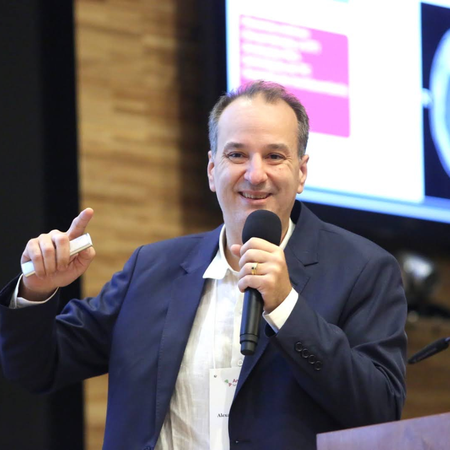
This JBCOMS column pays tribute, with deep regret and respect, to Dr. Alexander Sverzut, whose legacy will remain eternally present in the medical community. Above all, to the professor, friend, husband, brother and father, who left us so early and who will be sorely missed. We talked with Tatiana do Valle Lovato Sverzut, wife, and Cassio Edvard Sverzut, brother of our dear colleague Alexander Sverzut, who passed away on April 24, 2024, who provided moving testimonies that reveal a little about...

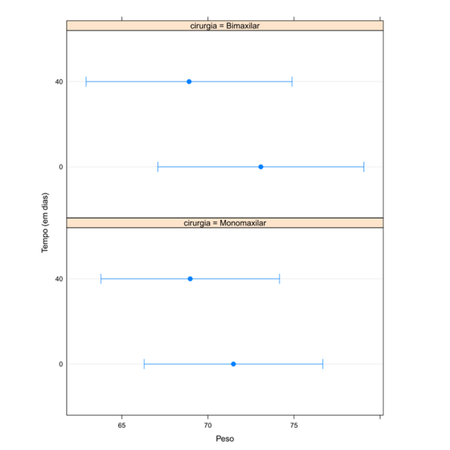
Introdução: A cirurgia ortognática causa prejuízo da função mastigatória nopós-operatório imediato. Objetivo: O objetivo desse estudo foi comparar as alteraçõesno Índice de Massa Corporal (IMC), perda de peso e alterações em exameslaboratoriais após a cirurgia ortognática monomaxilar e bimaxilar. Métodos: Estudoprospectivo por dois anos, onde os pacientes foram separados de acordo com acirurgia realizada. No pré-operatório de uma semana e no pós-operatório de...

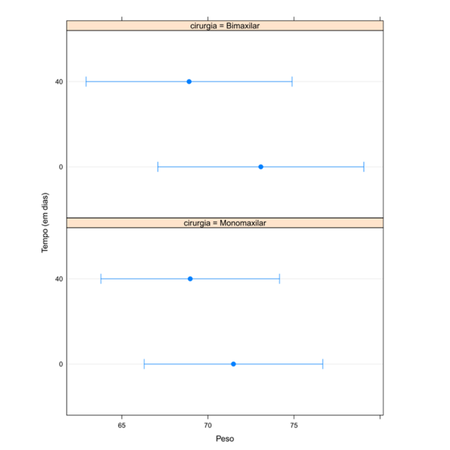
Introduction: Orthognathic surgery causes impairment of masticatory function in the immediate postoperative period. Objective: The objective of this study was to compare changes in Body Mass Index (BMI), weight loss and changes in laboratory tests after monomaxillary and bimaxillary orthognathic surgery. Methods: Prospective study for two years, in which patients were separated according to the surgery they underwent. In the pre-operative period of 1 week and in the postoperative period of 40...

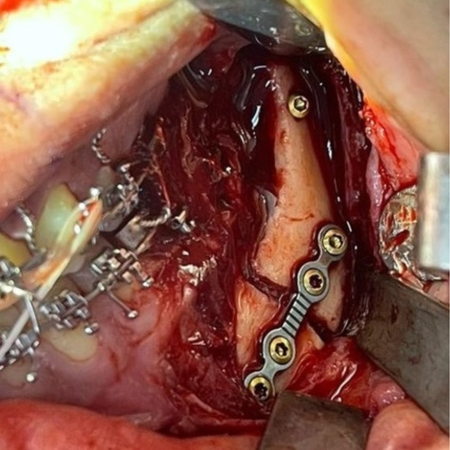
Introdução: A necrose asséptica da maxila representa uma complicaçãopós-operatória desafiadora associada à osteotomia Le Fort I, um procedimentocomum em cirurgias ortognáticas para correção de deformidades maxilomandibulares.Objetivo: Este trabalho visa apresentar um protocolo de tratamentoeficaz para a gestão dessa condição. Caso Clínico: Paciente com 37 anos deidade, diagnosticada com hipoplasia/atresia maxilar e prognatismo mandibular,submetida a tratamento...

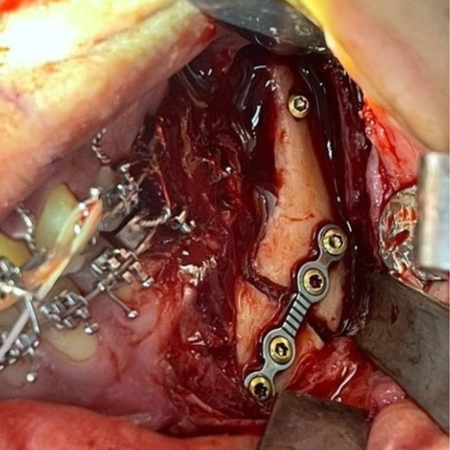
Introduction: Aseptic necrosis of the maxilla represents a challenging postoperative complication associated with Le Fort I osteotomy, a common procedure in orthognathic surgeries for the correction of maxillomandibular deformities. Objective: This study aims to present an effective treatment protocol for managing this condition. Methods: A 37-year-old female patient, diagnosed with maxillary hypoplasia/atresia and mandibular prognathism, underwent orthognathic surgery that included maxillary...

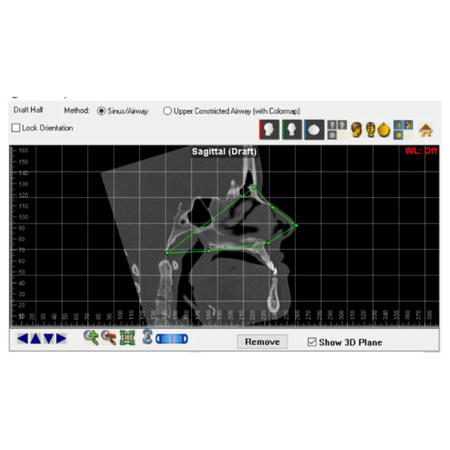
Introdução: Um desequilíbrio do padrão respiratório compromete o desenvolvimentocraniofacial, como a hiplopasia da maxila, que é uma alteração esqueléticafrequente em pacientes adultos. A relação entre a Expansão Rápidada Maxila Assistida Cirurgicamente (ERMAC) e a diminuição na resistênciado fluxo aéreo torna importante a avaliação do espaço aéreo superior, pelopotencial impacto no aumento do complexo nasomaxilar. Objetivo: O objetivodesse estudo foi avaliar os efeitos...

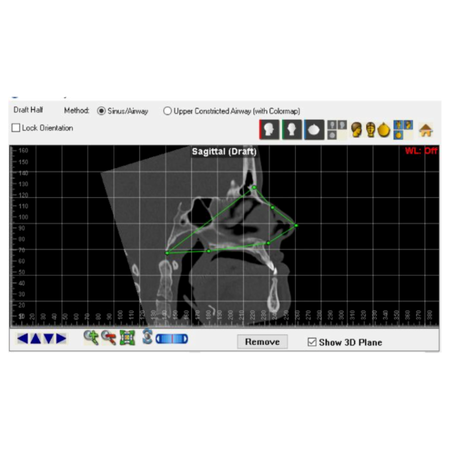
Introduction: An imbalance in the breathing pattern compromises craniofacialdevelopment, such as maxillary hyplopasia, which is a common skeletalchange in adult patients. The relationship between Surgically-Assisted RapidPalatal Expansion (SARPE) and the decrease in airflow resistance makes itimportant to evaluate the upper airway space, due to its potential impact onthe increase in the nasomaxillary complex. Objective: To evaluate the effectsof SARPE on nasal dimensions, maxillary...

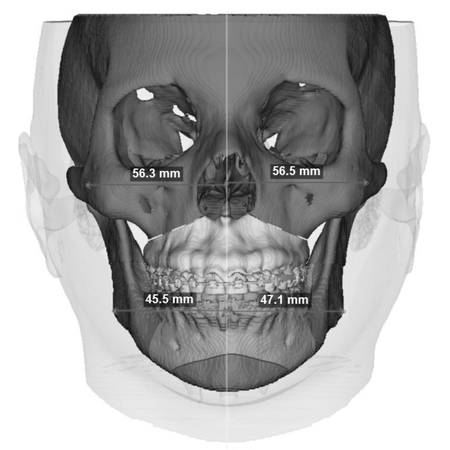
Objetivo: Avaliar a variação do ângulo mandibular nas deformidades dentofaciais,através da tomografia computadorizada. Métodos: Estudo retrospectivo,onde foram examinadas tomografias computadorizadas pré-operatórias de pacientessubmetidos à cirurgia ortognática. A altura vertical do ângulo mandibular,distância bizigomática, distância intergonial e ângulo mandibular foram analisadoscom o software Dolphin Imaging & Management Solutions. Os dadosforam submetidos à análise...

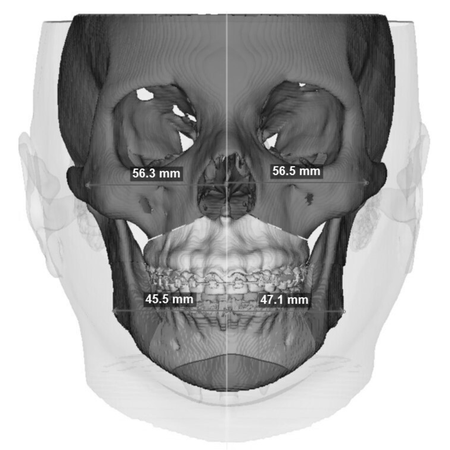
Objective: Evaluate the variation in the mandibular angle in dentofacial deformites,using computed tomography. Methods: Retrospective study, in whichpre-operative computed tomography scans of patients undergoing orthognathicsurgery were examined. The vertical height of the mandibular angle, bizygomaticdistance, intergonial distance and mandibular angle were analyzed using thesoftware Dolphin Imaging & Management Solutions. The data were subjectedto statistical analysis using ANOVA with...

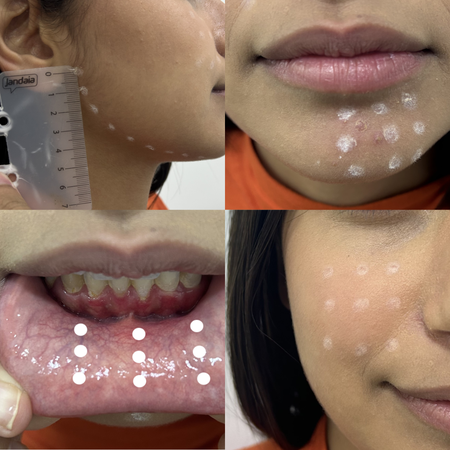
Introdução: O manejo cirúrgico no complexo maxilofacial, em procedimentosde reconstrução ou cirurgias ortognáticas, pode causar parestesia dos nervosmentual, infraorbital e alveolar inferior. A parestesia é uma das complicaçõespós-operatórias mais comuns, e pode ser justificada pelo posicionamentoanatômico dessas estruturas nervosas, externamente aos ossos faciais. Entreos tratamentos oferecidos para regeneração nervosa, a laserterapia de baixapotência tem apresentado bons...

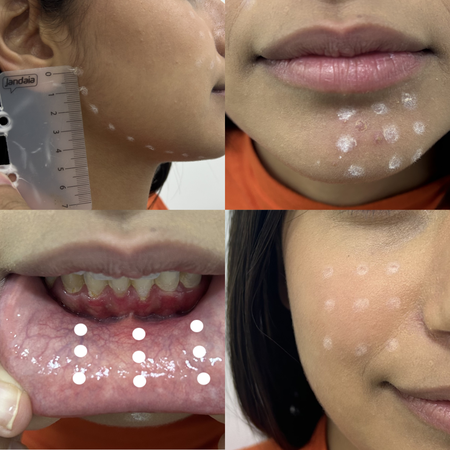
Introduction: The surgical management in the maxillofacial complex, such as in reconstruction procedures and orthognathic surgeries, can cause paresthesia of mental, infraorbital, and inferior alveolar nerves. Paresthesia is one of the most common postoperative complications and can be justified by the anatomical positioning of these nerve structures, externally to the facial bones. Among the treatments offered for nerve regeneration, low-level laser therapy has shown good therapeutic results...

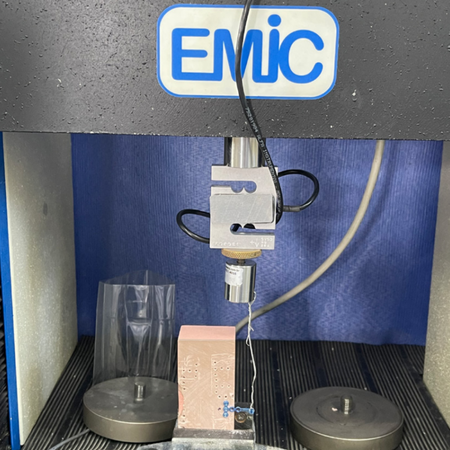
Introdução: O tratamento ortodôntico é frequentemente limitado pela gravidadedas más oclusões e pelas limitações dos dispositivos ortodônticos existentes.O uso de placas e parafusos tem se mostrado uma excelente opção de ancoragemortodôntica no tratamento desses casos complexos. Objetivo: O objetivo deste estudofoi avaliar três diferentes configurações de placas de ancoragem ortodôntica.Métodos: Três configurações de placas de titânio foram testadas e comparadas entresi:...

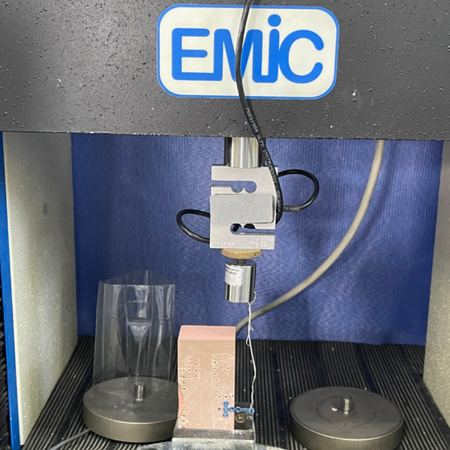
Introduction: Orthodontic treatment is often limited by the severity of malocclusions and the limitations of existing orthodontic devices. The use of plates and screws has been proven to be an excellent option for orthodontic anchoring in the treatment of these complex cases. Objective: The aim of this study was to evaluate three different configurations of orthodontic anchorage miniplates Methods: Three titanium plate configurations were tested and compared: a 3-hole straight plate, a 3-hole...

Copyright © 1998 - 20225 | All rights reserved. is a Dental Press brand